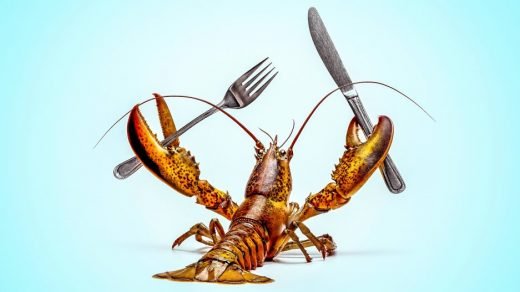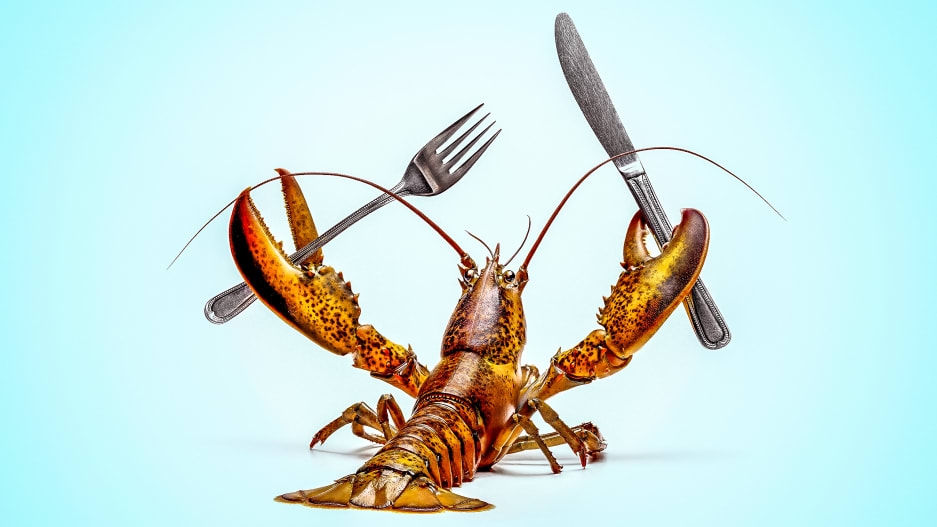Whole Foods bans Maine lobsters from stores, putting it in hot water with state politicians
A move by Whole Foods to pull Maine lobsters from shelves, which was triggered by a storewide policy tied to ocean conservation sustainability ratings, has now put the grocery chain in conflict with a bipartisan group of New England’s political leaders and its seafood industry.
Explaining its move, the grocery company has cited recent rulings by two top sustainability groups to suspend their certifications of Maine’s lobster fishery, which is the country’s largest. The groups—the Marine Stewardship Council and Seafood Watch—argue that the threats posed by fishing gear in the Gulf of Maine to a rare whale species, the North Atlantic right whale, have become too great. Whole Foods’ announcement applies to frozen lobster sold in its roughly 500 U.S. locations, the company told Fast Company, but will also apply to other products in the store that happen to use Gulf of Maine lobster as an ingredient, everything from packages of pasta containing lobster to cans of lobster bisque soup.
Although the move will limit the variety of lobster sold in stores, it doesn’t mean the end of lobster at Whole Foods: The chain clarified it will still be able to source lobster from other fisheries, in Canada and elsewhere, with the appropriate certifications. It will also sell the frozen Maine lobster stock ordered before this new policy went into effect; these supplies should last through at least the end of the year.
On November 16, the Marine Stewardship Council (MSC) announced that it would be revoking its certification for the Gulf of Maine lobster fishery effective December 15, arguing the fishing there is further endangering North Atlantic right whales, which are among the earth’s most endangered species—researchers believe the current population is only 340, they said in October. MSC’s blue label is among the most recognized on seafood packaging, a seal that denotes the product came from a properly managed fishery where fishing didn’t harm ocean habitats. MSC explained it had decided to suspend the Gulf of Maine’s certification because over the past decade, “climate-driven shifts in habitats and food sources have impacted right whale migration patterns, contributing to more interactions between right whales, fishing gear, and shipping vessels.” It said that Maine’s fishery was no longer complying with “regulations intended to reduce the risk of the Maine lobster fishery to right whales.”
The group’s announcement came a month after the Monterey Bay Aquarium’s Seafood Watch downgraded Maine lobster caught in U.S. and Canadian waters to a red rating (meaning “avoid”) for the same reasons. Whole Foods says it was this one-two punch, both MSC suspending the Maine fishery’s certification plus Seafood Watch dropping Maine lobster’s rating to red, that caused it to remove Maine’s lobster from stores. Like MSC, Seafood Watch informs purchasing decisions for many retailers, restaurants, and others in foodservice. Its standards are used by Whole Foods, the Cheesecake Factory, Mars’s petcare arm, and three of the nation’s biggest food distributors—Aramark, Compass Group, and Bon Appetit.
“These third-party verifications and ratings are critical to maintaining the integrity of our standards for all wild-caught seafood found in our seafood department,” a Whole Foods Market spokesperson told Fast Company. The company added it will continue to monitor the situation, and remains “committed to working with suppliers, fisheries, and environmental advocacy groups as it develops.”
Maine’s lobster industry now sees trouble brewing. Maine is the country’s largest supplier of lobster, accounting for 82% of U.S. lobster landings (Massachusetts ranks as the No. 2 state). Blue Apron and HelloFresh have also stopped sourcing Maine lobsters, citing similar concerns.
In September, one of the remaining right whales—a female named Snow Cone, a star of the 2021 documentary The Last of the Right Whales—got tangled in fishing gear near Nantucket. Scientists with the New England Aquarium predicted, “Her death is all but certain.”
Conservationists, and even government regulators, have been pushing the Gulf of Maine fishing industry to revise its practices for a while. Last year, the federal National Marine Fisheries Service unveiled a long-awaited plan to protect right whales. Among the new standards were recommendations to mark lobster gear, add weak points to ropes, and shorten the fishing season. A major lobster trade group responded that these recommendations posed an “immediate and dire threat to the historic lobster fishery,” and argued that the data show most right whales left the Gulf of Maine a decade ago, and that lobster gear hasn’t entangled a whale in almost two decades, although their fishery was being asked to “further reduce their risk to right whales by 98% in the next 10 years.”
The conflict is making for some odd bedfellows. This weekend, Fox News’s The Big Sunday Show ran a segment in which the hosts lambasted Whole Foods for pulling lobster over “a risk” (panelist Gillian Turner declared, “Give them to me. I’ll take the risk”). That followed a joint statement by five of Maine’s top elected officials—three Democrats, one Republican, and one Independent—blasting the two environmental groups’ decisions to revoke their endorsement.
“We are disappointed by Whole Foods’ decision and deeply frustrated that the Marine Stewardship Council’s suspension of the lobster industry’s certificate of sustainability continues to harm the livelihoods of hardworking men and women up and down Maine’s coast,” read a statement cosigned by Governor Janet Mills, Maine’s two senators, Susan Collins and Angus King, and both of its congressional representatives, Chellie Pingree and Jared Golden. “There has never been a right whale death attributed to Maine lobster gear,” they added. “Maine lobstermen have a 150-year history of sustainability; and Maine’s lobstering community has consistently demonstrated their commitment to protecting right whales.”
The blow comes at a time of increased pressure to rethink humans’ seafood consumption. Amid the growing numbers of species now facing extinction, conservationists have begun pushing consumers to eat invasive ocean species like venomous lionfish. Governments worldwide have also started to enact more aggressive policies to protect not just endangered marine life from being eaten, but also sea animals with complex behavior and nervous systems that possess higher intelligence. Last November, the United Kingdom recognized octopuses, crabs, and lobsters as “sentient beings,” raising a new set of moral questions about how, or even if, they should be fished.
(39)



